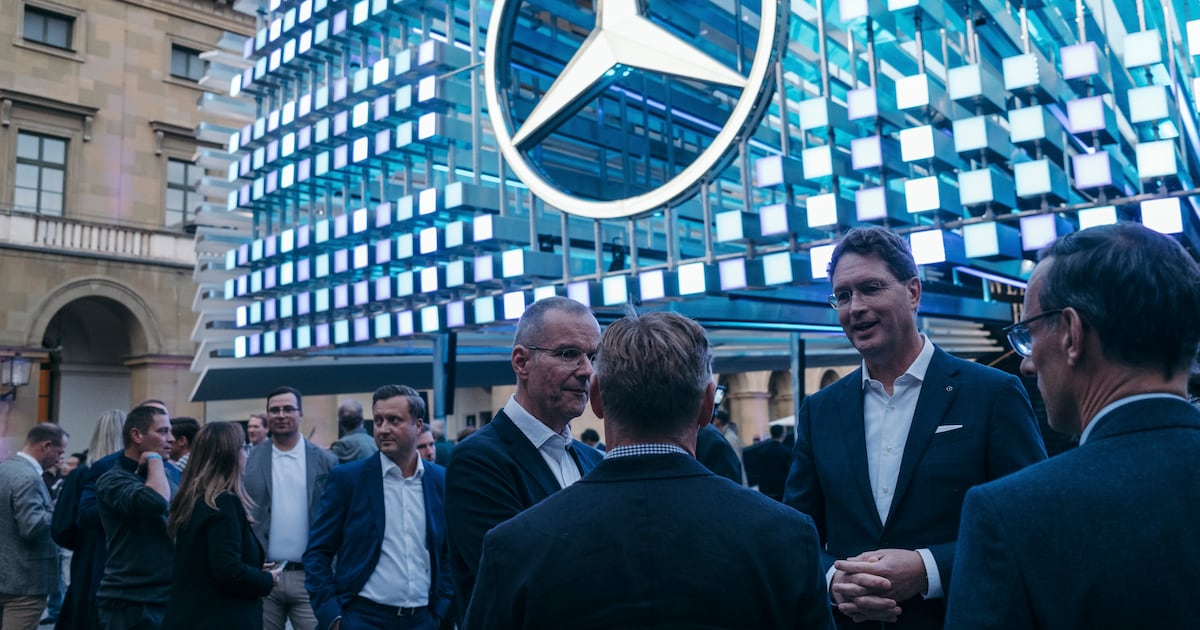Munich’s trade fair is too vast to count as a last-chance saloon. Yet that was the framing for Germany’s car giants at this year’s IAA automotive trade fair – Europe’s largest: a make-or-break moment to secure Germany’s automotive future.
Its recent past has been gloomy with Germany’s car industry delivering just four million cars last year, its lowest level – pandemic excluded – in 30 years.
Jobs in the industry are down nearly 10 per cent in just seven years, with a further wave of cuts looming. In each of three key markets – US, Europe and China – German brands, taken together, have a share of less than 20 per cent.
In case anyone has been asleep in Germany, a KPMG industry report warned of looming “deep changes in business models, production and processes”.
Chinese brands, led by BYD, already account for six of the top 10 car registrations worldwide and the IAA exhibitor index saw a 40 per cent jump in lesser-known Chinese carmakers such as Omoda, Jaecoo, GAC and Xpeng.
Leading the fightback, BMW attracted the most attention with the launch of its new electric iX3, the first model in a new affordable vehicle category.
Mercedes-Benz presented two new electrics: the CLA compact and an SUV, the GLC. After a series of recent flops, and promises of more “quality and innovation”, Mercedes chief executive Ola Källenius delivered the trade fair’s fist-biting moment when he tried – and failed – to open the CLA’s spacious new car boot.
As an amused chancellor Friedrich Merz looked on, Källenius said: “You’ll just have to believe me.”
Merz used his Munich visit to throw his weight behind domestic car companies and what he called a “key industry for the prosperity of our country”.
“No other sector is so closely linked with Germany’s reputation and image,” he said. “Our goal is that Germany will belong in the future, too, to the leading locations for car companies and manufacturing.”
Aware that goals can be missed, Merz will hold yet another summit of car companies and suppliers next month, a gathering that is likely to highlight the political divisions within his own government.
The chancellor’s Bavarian allies demand Germany push for “technological openness” – code for “save the petrol/diesel motor” – and want Berlin to push back against the European Union’s 2035 cut-off for combustion engines.
But the Merz centre-left Social Democratic (SPD) coalition partners have warned that “further political flip-flopping” would hurt more than help the domestic car industry.
German auto analysts agree. Even the conservative Frankfurter Allgemeine daily newspaper – no friend of top-down mobility policy – saw the writing on every wall in Munich: Renault, it noted, was the only company presenting a new petrol model.
After a late start in e-mobility, German VDA car lobby head Hildegard Müller said her members now have 120 different electric models for sale.
That Germany’s pure electric market share is still stuck at 19 per cent, industry and analysts agree, is because politicians and local authorities have failed to deliver on their promises for widespread fast-charging infrastructure, battery production subsidies and a dedicated, lower energy tax rate for car charging.
Leading a new industry push on the combustion engine, Volkswagen chief executive Oliver Blume suggested Europe would be better served by “realism” rather than outright bans.
“We see electromobility as the leading technology of the future,” he said, after presenting the new ID.Polo, “but I consider it unrealistic that by 2035 we will have exclusive electromobility.”
Given the sharp headwind from China, Germany’s one-time automobile rivals presented a remarkably united front in Munich. Even if their message had a touch of Monty Python: not dead yet.

